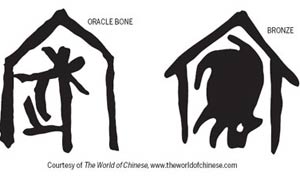International firms trying hard to build image in China
Updated: 2011-10-08 17:16
(Xinhua)
|
|||||||||
BEIJING-- German chemical company BASF SE set up a community group in southwest China's Chongqing municipality last month to seek the opinions of local residents regarding a massive chemical plant project that is being invested in by the company.
Local residents have showed strong opposition to the Chongqing BASF project out of environmental concerns, with support from environmental activists in both China and other countries.
Situated on the upper reaches of the Yangtze River, the multi-billion dollar chemical plant may pose a threat to the property and people located near the middle and lower stretches of the river, according to domestic and overseas environmentalists.
A BASF media relations official said the company has acknowledged the public's concerns and the company's community group is just the latest step the company has taken to deal with the situation.
As a leading chemical company, BASF has sufficient experience and expertise in preventing environmental pollution, the official said.
Over the past decade, BASF has established a children's laboratory program to foster a love of chemistry in China's younger population. The program has thrown events in major cities like Beijing, Shanghai and Guangzhou, attracting over 100,000 children.
The BASF children's lab program, as well as the company's Chongqing community group, represents just a few of the ways in which large international companies have tried to bolster their image in China.
Syngenta, a Swiss company known for its advanced agrobiological technology and expertise, has focused its public relations strategy on Chinese professionals and college students. It has implemented a number of cooperative programs with local research groups and agricultural universities, providing funds for research projects and awarding scholarships to students.
Last month, Syngenta sponsored a symposium in Beijing, at which many Chinese students delivered academic papers or gave speeches to show their knowledge and talent in the area of agrobiological science.
Anglo-American PLC, which once planned to launch a multi-billion dollar coal-based chemical plant project in northwest China's Shaanxi Province, has been carrying out an anti-AIDS/HIV education program for local residents in the region.
The chemical plant project was canceled last year, but the anti-AIDS/HIV program has been going forward as scheduled. "Business is business, while charity is charity," said Tina Meng, a company official in charge of media relations.
Syngenta, an international company set up after a successful regrouping by three industrial leaders, has become quite famous among Chinese professionals and students in the country's fledgling agrobiological sector.
The efforts by these international companies to build up their image in China are paying off, but challenges and difficulties still lie ahead, said Wang Jian, deputy secretary-in-general of the China Enterprise Culture Society.
"While some of these companies are doing the right thing, some others may not," Wang said, referring to several international firms that have fallen victim to public criticism in recent years.
"You (international companies) must be on your guard in the age of the Internet," said Ma Xiaolin, a noted critic on international issues and president of Bo Lian She, the country's first "real-name" blogging website.
"International companies have to be very careful, as every online blog works as a form of news media that can spread unflattering news across the country and even the world in a matter of seconds," Ma said.









